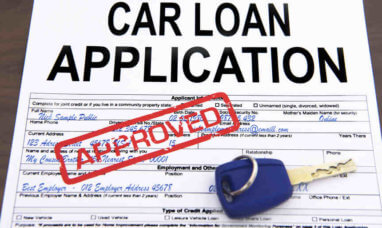Buying a car is always a big decision, no matter your age, lifestyle, or finances. How do you make the smartest choice for your car payments with so many dealerships and auto loan providers in the market?
Here are some essential rules and tips to make a smarter car purchasing decision.
General Rules When Buying a Car
Before you start window shopping for a car, there are two key rules to keep in mind. Of course, every car buyer is unique, so use these as guidelines for managing your finances.
-
-
-
The 50-30-20 Rule
-
-
This ratio helps you to divide your gross income according to your spending needs. 50% should go to your basic needs like food, housing, education, and transportation, where your auto expenses come in.
A car is essential since it helps you commute to your workplace or business, take the kids to school, keep healthcare appointments, and connect you to other important tasks. Out of the 50% basic needs budget, about 10% should go to your car payments.
Next, 30% of your income should cover non-essential wants like travel and entertainment. The remaining 20% should go to savings, long-term investments, and paying off debt. You can spend more on your car payments if you make adjustments to this part of your budget.
If you contribute more to savings and cut down on entertainment, you can afford a more significant down payment for your car. This plan gives you better interest rates and a better chance to get your dream car.
-
-
-
The 20-4-10 Rule
-
-
The 20-4-10 ratio is precisely for that 10% of your income dedicated to financing your car. With this formula, 20% of your car budget should go to a down payment. Next, your payment plan should last no more than four years.
This is because the longer you pay your car loan, the higher your interest rates and the more you end up spending on your vehicle. Finally, your total car payment should be 10% or less of your gross income, including your car’s interest, principal, and insurance.
Balance Your Budget, Your Life, and Your Car Payment
Car payments are a significant financial obligation, so the above ratios can help you balance your money and avoid debt. For a more accurate idea of how much your car will cost, use an auto loan calculator. The car payment calculator BECU requires a few key figures:
-
-
- Your ideal car’s price, including the sales tax estimate
- Your down payment, whether that’s cash or the value from a trade-in
- Your absolute payment time, which is usually between 3 to 7 years
- Your estimated interest rates, which increase with the time and age of the vehicle
-
You can also use a bi weekly payments car loan calculator for more considerable savings on your car loan. Instead of making monthly payments, you can clear your car loan faster if you pay every other week.
A bi-weekly calculator shows you how much you can save on interest and how your payments change over time. It works for any income, not only for those who earn a weekly paycheck.
Your Payment Isn’t Your Only Car Expense
On top of your car loan payments, several other car-related expenses affect how much you can afford. These include fuel, insurance, parking fees and tolls, licenses, maintenance, and repairs. Add these auto expenses when planning your car budget.
Fees and taxes also affect how much you can spend on your car. These include vehicle registration fees, license plate fees, dealer fees, and sales tax. Your location depends on how much you pay in costs, but they can increase your car budget by $3,000 or more.
Car insurance, in particular, varies according to the buyer, lender, and type of vehicle. Lenders will check your age, gender, location, driving record, and credit history to give you a quote. Compare vehicle insurance options and take advantage of discounts that will help you save on your car payments.
New or Used, Buy or Lease?
Your car-buying habits impact your decision as well. Some car owners prefer to buy it now and keep it for several years, while others get bored quickly and prefer to trade-in. Yet others prefer to buy a used car because it’s tried and true.
Compare your DCU auto loan rates for used cars and new cars to find your best fit. You can also explore the different long-term installment loans no credit check direct lenders, to help you reach your car payment goals, regardless of your credit score.
Avoid a Costly Car Payment Mistake
Most people think it is better to have a more extended loan payment period to make their vehicle more affordable. This misinformed belief ends up costing you a lot more for your car because of interest rates.
Instead, choose a 3-year repayment period for a used car and a 5-year repayment period for a brand new car. The aim is to protect you from interest rate hikes that come with longer loans.
Get What You Want — but Stay Balanced
With these tips, anyone can get their ideal car without breaking the bank. Take plenty of time to gather as much information as possible about car loans. There are as many cars for sale as individual buyers and tastes, so keep an open mind.
It may make more sense to buy a new but slightly older car model, or you may even stumble upon a used car in excellent condition for your needs. In the end, negotiate for a good deal with your insurance and auto loan lender to maintain your financial health.
Next Steps
When it’s time to get a new set of wheels, always put your budget first. Have a realistic goal to find the car that fits your income and expectations, and then begin your online search. Browse through car dealerships, insurance providers, and auto loan lenders. This way, you will find the perfect car right within your budget.
Featured Image: Twenty20








